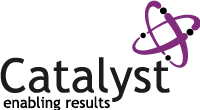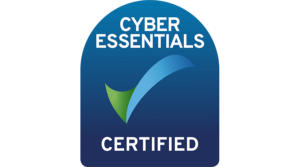Statistical Tools Training
Designed to Deepen your Understanding of Tools used to Measure Statistics and Data
Scroll down to Learn More
[OPENING WORDS – OVERVIEW]
We are running these one and two-day “Friday” short courses in our easily-accessed London open training venue. They can also be delivered in-house on your premises.
Our specialist trainers will share their hands-on expertise and deep insights to enable your proficiency in the use of these essential skills. As always, you are encouraged to ask your trainer for advice following the training. If you would like more formal coaching support in these techniques, of course we would be happy to arrange that too!
Several Statistical Tools Training Courses Available
In-house or Online Options Available
Short 1 Day Courses that are Full of Content
Great for Learning new Techniques or Refreshing your Skillset
Click a Data Course from below to Learn More...
- Graphical Data Analysis – Comprehensive introduction to Minitab’s powerful capabilities.
- Measurement Systems Analysis – Learn to understand business data and performance.
- Statistical Process Control – Covers common SPC Charts and understand variation.
- Process Capability Analysis – Use statistical calculations to determine the ability of a process.
- Hypothesis Testing – Learn wether differences in sample statistics are statistically significant.
- Statistical Modelling– Hypothesis Testing and Regression Analysis taken further.
- Design of Experiments – Structured technique for establishing cause and effect relationships.
- Measuring Process Performance – Measure, understand and communicate using Minitab.
- Analysing Process Performance – Extract information & increase understanding in Minitab.
- Reliability and Survival Analysis– Learn about life data and reliability.
- Practical Experimentation for Process Improvement – Learn the fundamental technique.
- Advanced Experimentation for Process Optimisation – Learn more advanced techniques.
Measurement Systems Analysis

Businesses need data to understand and communicate the true performance of their processes to enable process control, improvement and decision making. It follows that the measurement
- Gauge Repeatability & Reproducibility Study (GR&R Study) – Planning, Running, Analysing the Study
- Gauge Linearity and Bias Study, Stability
- Attribute Agreement Analysis
Days: 1
Training Options: In-house and Online
Price: TBC
Process Capability Analysis
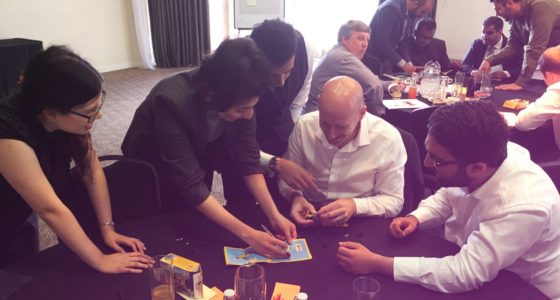
This one-day programme is one of a series of courses teaching the use of statistical methods to measure, understand and improve process performance. Process Capability uses statistical calculations to determine the ability of the process to meet specifications using Cp/CpK indices.
- Capability Principles
- Basic Statistics and Normality of Data
- Cp/CpK Indices (and Pp/PpK)
Days: 1
Training Options: In-house & online
Price: TBC
Statistical Modelling
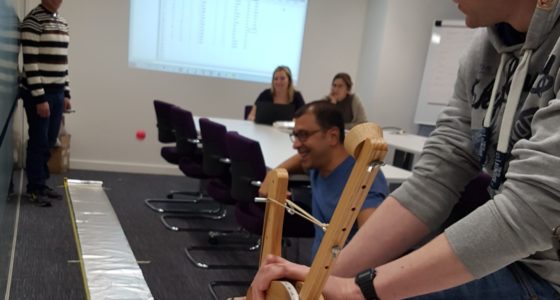
This programme can be taken following completion of Hypothesis Testing and Regression Analysis and teaches the application of these tools to more complex problems.
- ANOVA with more than 2 variables – General Linear Model
- Checking the Model
- Visualising the Response
- Using the Model to predict and optimise
Days: 1
Training Options: In-house & online
Price: TBC
Design of Experiments
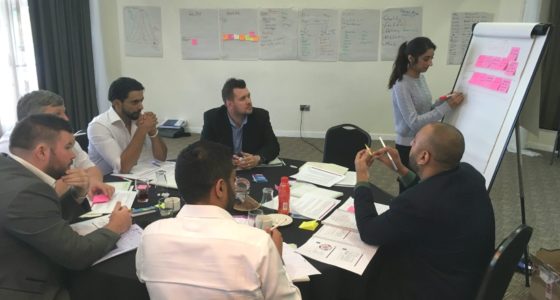
DoE is a structured statistical technique for establishing cause and effect relationships, which in turn form the foundation for organisational learning. Due to their efficient use of data and deployment in a team environment, learning occurs at an accelerated pace, critical in today’s highly competitive markets.
- Screening and Optimising
- Full and Fractional Factorial Experiments
- Planning, Running, Analysing a DoE
- Checking assumptions
- Visualising the Response
- Predictions and Optimisation
Days: 1
Training Options: In-house & online
Price: TBC
Analysing Process Performance using Minitab
When good quality data is available, businesses want to be able to extract the maximum information from it in order to increase process understanding. What factors affect process performance? Which do not? What is the size and nature of the effect of factors on output performance? This programme provides detailed training in the practical application of Hypothesis Testing and Regression Analysis which are used to answer these questions.
Our 3 day programme Measuring Process Performance using Minitab provides the skills needed to obtain high-quality process data and is often taken prior to this course.
- t-test, ANOVA, Chi Square Tests
- Simple Linear, Multiple Regression and Logistic Regression
- An Introduction to Design of Experiments
- The background statistical knowledge to correctly apply, interpret and communicate the above
Days: 3
Training Options: In-house & online
Price: TBC
Practical Experimentation for Process Improvement
DOE is the fundamental statistical technique for establishing cause and effect relationships, which in turn form the foundation for organizational learning. Due to their efficient use of data and deployment in a team environment, learning occurs at an accelerated pace, critical in today’s highly competitive markets
- Types of experimentation
- Why designed experiments are superior
- Minitab and statistics review
- Nine step DOE framework
- Two-level factorial designs – concepts
- Experimental objectives
- Selecting factors, process familiarization
- MSA, replicates versus repeat measures
- Designing the experiment with Minitab
- Estimating effects, understanding interactions
- Verifying assumptions
- Rectifying assumptions with transformations
- Defining and selecting the best model
- Using the Minitab optimizer function
- Verification runs
- Reducing variation: blocking, replication, randomization
- Split plot designs
- Implementing results
- Checking for more complex responses – centre points
Days: 3
Training Options: In-house
Price: TBC
Graphical Data Analysis
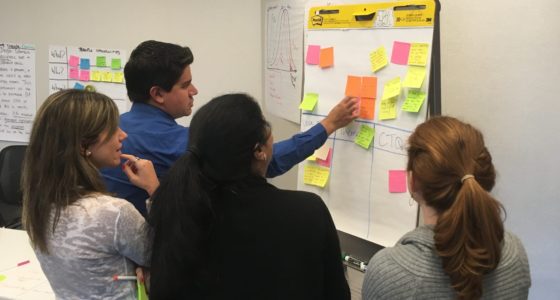
This one day course will provide a comprehensive introduction to Minitab’s powerful capabilities, focusing on learning the software from scratch using a wide range of graphical and basic statistical tools. Upon completion, delegates will be able to run and interpret their own analyses with confidence.
- Histogram, Pareto Charts, Scatter Plots, Time Series Plots
- Data Segmentation (stratification)
- Basic Statistics
Days: 1
Training Options: In-house and Online
Price: TBC
Statistical Process Control
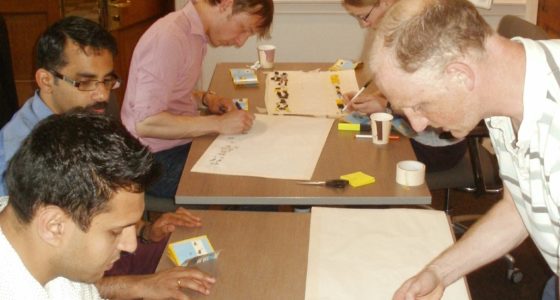
This is a practical and comprehensive programme covering the most common SPC charts, the principles and practice of SPC, understanding variation and the different approaches needed for reacting to special and common cause variation
- Common and Special Cause Variation
- Process sampling
- Developing and using Control Charts in practice
- Tests for Special Causes
- X/mR Charts, Xbar-R Charts, Attributes Charts
Days: 1
Training Options: In-house & online
Price: £TBC
Hypothesis Testing
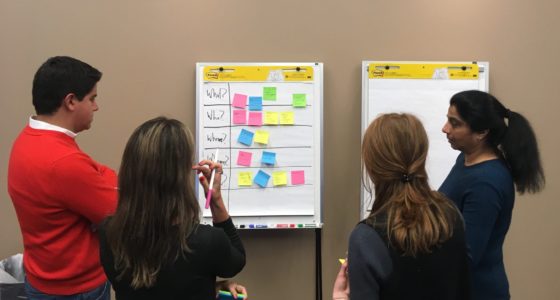
Hypothesis tests are used to determine whether differences between sample statistics are statistically significant. For example: We assessed 300 pieces of work processed by Team 1 and 30 were defective (10%) and for Team 2, the defective rate was 45 out of 300 (15%). Although these results appear to prove Team 2 is performing worse, this difference is not statistically significant so any business decision based on thinking Team 2 was worse has a high risk of being wrong.
- Confidence Intervals and Hypothesis Testing Principles
- T-Tests, One Way ANOVA
- Standard Deviations Tests and Chi Square Tests
- Assumptions for the Tests and Checking Assumptions
- Power and Sample Size / Type 1 and 2 Errors
Days: 1
Training Options: In-house & online
Price: TBC
Measuring Process Performance using Minitab
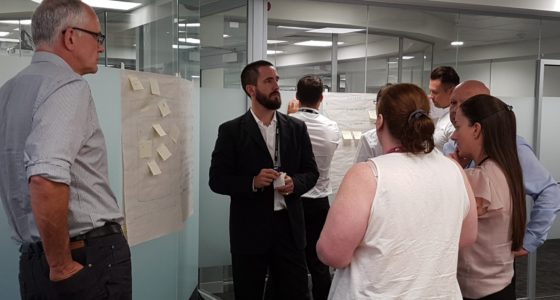
Businesses need to be able to measure, understand and communicate the true performance of their processes to enable process control, improvement and decision making. This requires that the right measures are identified, the data is reliable and sampled appropriately and that the data is turned into useful information which describes the process honestly.
- Operational Definitions
- Gauge R&R Study
- Process sampling and data collection
- Summarising and presenting data
- Statistical Process Control using the Individuals Chart
- Process Capability Analysis (Cp/Cpk)
Days: 3
Training Options: In-house & online
Price: TBC
Reliability and Survival Analysis
Products and systems are expected to function at the time of delivery and for a certain time afterwards. The life of the product can be measured in hours, miles, cycles-to-failure, stress cycles etc. These measurements are known as life data. Reliability is “Quality over Time”.
- Censored Data
- Parametric and Non-Parametric Analysis
- Accelerated Life Testing
- Shelf Life
Days: 1
Training Options: In-house
Price: TBC
Advanced Experimentation for Process Optimisation
This course follows from the Practical Experimentation course and will enable experimenters to add a range of advanced techniques to their DoE toolkit. The main topics are General Factorial Designs, Response Surface Methodology, Mixture Designs and Evolutionary Operations
- 2-Level factorial review
- 9 step DOE framework
- Modelling more complex relationships
- Experimental design families
- General Factorial designs
- Modelling surfaces
- Lack of fit statistics
- Advanced diagnostics – deleted statistics
- RSM Design overview
- Centre points and axial points
- Sequential RSM from 2k designs
- RSM design families
- Surface plots and contour plots
- Response optimizer with multiple responses
- EVOP as a process management system
- EVOP Designs for 2 and 3 factors
- Mixture design principles
- Mixture design families
Days: 3
Training Options: In-house
Price: TBC
Contact Us Below to Enquire about any of the Above Courses
